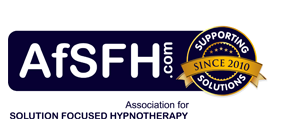Advertising Standards
Advertising your Hypnotherapy practice
In all our promotional materials, in whatever format, it is important for us to adhere to the appropriate advertising codes so that we avoid bringing our profession into disrepute. Investing time in familiarising ourselves with current legislation and recommendations will help us to maintain high standards in all our marketing and advertising materials.
Advertising standards are updated regularly, so always check the latest guidance from the ASA
Scroll
Who is responsible for overseeing standards in marketing and advertising?

The Committee of Advertising Practice (CAP) write and update the advertising codes for the UK. There are two codes, one which covers broadcast media (TV and radio) and the other for non-broadcast media (leaflets, posters, websites and social media sites). The Advertising Standards Authority (ASA) is the organisation responsible for administering the CAP Codes. The ASA also manage the complaints procedure for advertising.
Scroll
What are my responsibilities?

You need to make sure that all your marketing and advertising is compliant with the CAP code. You should also ensure that anyone advertising on behalf of your practice is also meeting the appropriate advertising standards. If you work with cancer patients, please take time to familiarise yourself with the particular requirements pertaining to this client group (see websites at the end of this page).
Below is a summary of some of the key requirements and recommendations from the CAP code (for non-broadcast media) and supporting help notes (therapies tips and guidance). The information given here is not exhaustive and further research and reading is recommended. A list of websites is provided at the end of this page.
Scroll
CAP code key aspects of advertising:

Principle: All marketing communications should be legal, decent, honest and truthful. It is the responsibility of the marketer to ensure that all marketing communications pertaining to their service(s) are legal. Marketing material must not mislead either through subjective claims, omission or exaggeration. A potential client or customer must be allowed to make an informed decision about your service or product. If you do not comply, a complaint may be made against you to the ASA who would consider the complaint against the CAP code.
Harm and offence: Marketing materials must not contain any information likely to cause offence on the grounds, for example of race, religion, gender, sexual orientation, disability or age. The deliberate act of causing fear or distress e.g. through the use of a shocking image to attract attention is not acceptable.
References to medical conditions: Clients should not be in any way discouraged from seeking essential medical treatment or offered a diagnosis or advice pertaining to serious medical conditions. Clients should not be advised to self-diagnose or avoid essential medical treatment in favour of Hypnotherapy. General information about medical conditions that is accurate and responsible may be offered.
A full list of medical conditions for which medical advice must be sought from a suitably qualified person (list 1) and could be sought (list 2) is available via the following link: https://www.asa.org.uk/asset/A2A01BF3-6F72-4216-B4AFC73344C4AF55/
List 1: Discussing any of these conditions is non-compliant and in breach of the CAP code.
List 2: Conditions which could be referred to in marketing communications without breach of the CAP code subject to compliance with all other appropriate clauses of the code. Pre-fixing a condition listed on list 2 with 'serious', 'chronic', 'persistent' or something similar is also likely to be in breach of the code.
If you are in any doubt as to the appropriateness of listing any medical condition in your marketing materials, contact the ASA for advice (https://www.asa.org.uk/).
Claims of efficacy: Any claims made about the efficacy of Hypnotherapy must be supported by robust evidence to support the claim. Any medical or scientific claims about Hypnotherapy should be backed up by evidence, where appropriate, consisting of trials on people. The ASA offers information pertaining to evidence-based claims and the submission of documentary evidence to support claims and further information should be sought via the CAP code.
Avoid using the words 'treat', 'treatment' or 'cure' either directly or indirectly e.g. through the use of visual information and images. It would, for example, be inappropriate to claim that 'Hypnotherapy can cure your insomnia' but you could say that Hypnotherapy can 'help you to relax,' or 'generate an improved sense of well-being'.
References to the history and tradition of Hypnotherapy are acceptable but must not make health claims which are not supported by robust evidence e.g. 'Hypnotherapy has been used successfully for hundreds of years'.
Providing links to information: Links to published research should be provided in a section of your website not directly connected to your service; i.e. under a separate tab labelled 'further reading' or 'research'.
Use of testimonials and endorsements: If you wish to use an endorsement or testimonial from a client in your marketing communication the claims made by your client must comply with ASA rulings. The testimonial must be genuine, and you must hold written permission to use it from the client in question, which includes their contact details. Testimonials and endorsements should not refer to a medical condition such as those detailed in the ASA's 'List 1' (see above).
Use of titles and qualifications: You must not use any title or qualification in a way that may mislead the public about its meaning or significance, or to claim you are better than other practitioners. You must be able to provide evidence regarding your professional qualifications, expertise and membership of professional bodies. This also includes the appropriate use of professional membership designation and use of a professional organisation's logo - please refer to the AfSFH Membership Agreement for further details about appropriate use of AfSFH designations.
Scroll
Useful links:

Advertising standards authority: https://www.asa.org.uk/
Committee of Advertising Practice: https://www.cap.org.uk.
https://www.asa.org.uk/news/complementary-therapies-tips-and-guidance.html
CAP code: https://www.asa.org.uk/codes-and-rulings/advertising-codes/non-broadcast-code.html
Contains a list of references to medical conditions: https://www.asa.org.uk/asset/A2A01BF3-6F72-4216-B4AFC73344C4AF55/
Guidance for therapists working with cancer patients:
The Cancer Act 1939 http://www.legislation.gov.uk/ukpga/Geo6/2-3/13/section/4 CNHC
Guidance on the Cancer Act 1939 https://www.cnhc.org.uk/sites/default/files/Downloads/GuidanceonCancerAct.pdf
General Guidance
Government website: https://www.gov.uk/marketing-advertising-law
CNHC guidelines for advertising: https://www.cnhc.org.uk/sites/default/files/Downloads/Advertising-guidance.pdf
NCH guidelines for advertising: https://www.hypnotherapists.org.uk/wiki/doku.php/members:policies:asaguidelines
Scroll
Further help...

Get in touch
If you require any further information or have any questions about Advertising or the information provided here, please contact our Head of Professional Standards at: standards@afsfh.com.
© 2021 AFSFH All rights reserved
The Association for Solution Focused Hypnotherapy
(AfSFH) is a not-for-profit organisation
Company Registration no. 7412098 © AfSFH
